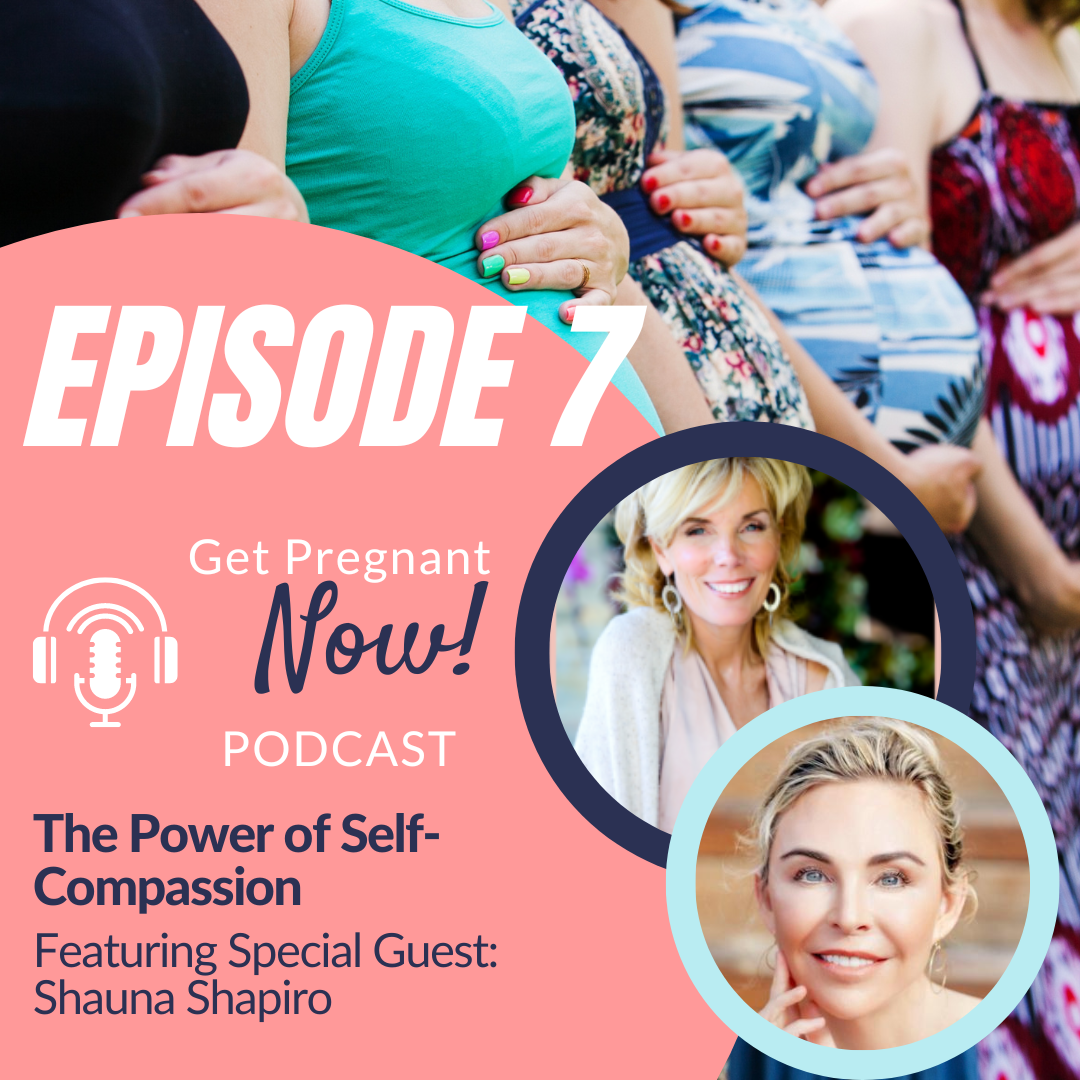Yay. Welcome back, everyone. Welcome. Welcome back. I'm so happy. You're here. You're listening to all the interviews and I know they are amazing. And I love that you take the time and see, where can you look under the rug? Where can you look? What's the root cause of what's block you to get pregnant, or how can you increase your chances to get pregnant? I am south CA well from get pregnant now and I've been helping women for over 20 years. Women who tried everything to get pregnant. And, and I'm a firm believer that you have to find a root cause. Otherwise you can spend so much money and still you do not have your baby in your arms. Now the fertility journey is such a roller coaster often. And what a lot of women forget is that there is a huge body mind connection. And I, I see it over and over again that sometimes women only look at the medical aspect, the physical aspect that is yes, very important. And as important is the body mind connection is your body mind in fully alignment with becoming pregnant and becoming a mother and one of the things, and that's why I'm so excited to talk, uh, with my guest today is that there is a lot of self-talk. There is a lot of negative self-talk and it's very, very important that there is self love and self-compassion, and that's why in this interview, I talk with Dr. Shauna Shapiro, and she's gonna talk about the power of self love and the power of self compassion. Welcome.
Hi, thank you so much for that beautiful introduction.
Hmm. Let's dive right in and talk about the power of self-compassion. What, what is your take on that? And I know you've extensively studied, uh, this, um, yeah. Um, yeah, so
So I wanna begin first. I wanna just acknowledge the pain and challenge of, of struggling with infertility and wanting a child. And what I want to be really clear about is that self-compassion self love doesn't mean that you have to pretend to be happy. It doesn't mean that you say, oh, you should, you know, you should just be happy all the time. This is not what it's about. What it's about is being kind to yourself in the midst of pain that you learn how to be on your own team. So instead of judging or shaming yourself, because things aren't happening the way that you're hoping for them to instead to bring kindness to say, sweetheart, this is hard. And in some ways I feel like that is your best training to become a mother is learning how to bring this mothering, loving voice to yourself.
And it's easier said than done that. For me, learning how to be kind to myself was very challenging and felt awkward and sometimes just kind of contrived. And yet I knew it was important because I'm a scientist. And so I was studying the research and what the research shows is that when you judge yourself, when you shame yourself, when you beat yourself up, when you berate yourself, what happens is twofold. One, it shuts down the learning centers of the brain. So if you make a mistake and you shame yourself, you keep yourself stuck in that mistake. So it does not help us learn. It doesn't help us grow. The second thing that shame and self judgment do is they the increase our sense of pressure and stress and fear. What puts us into the fight or flight response, which inhibits our capacity to get, to get pregnant.
So what self-compassion self kindness, you are quite interesting just from a scientific perspective. First, it turns on, um, dopamine, right? It kind of, it, it, it elicits the dopaminergic response, which turns on our learning and motivation centers. So we're wanting to learn new skills and new behaviors. That kindness is one of the most effective tools. Second, it soothes us when we offer ourselves compassion. And especially when we put our hand on our heart, one of my favorite practices, you can try it with me. Now, as you're listening, when we put our hand on our heart, it releases oxytocin. Oxytocin is the same hormone that's released when you're nursing, when you are making love, when you're being hugged and we can give it to ourselves. And what oxytocin does is it soothes the threat system. It puts us into a state of calm and relaxation and ease and a much more receptive and healthy state to become pregnant. So we offer ourselves self-compassion in part to be kind right, but also from a physiological standpoint, it prepares us best to become pregnant. And it prepares us to be our best selves as mothers. So that was a lot, <laugh>
Now a word from our sponsor.
If you have been struggling with infertility for years, before you give up hope for your baby, take this quick free quiz to figure out what might be blocking you from getting pregnant, getpregnantquiz.com again, that is getpregnantquiz.com.
Now back to our podcast, you know, it's so true because it's, it's, it's something that what I notice with my clients, they beat themselves up and they beat their bodies up. Mm-hmm <affirmative> and they all things start to happen. You lose the connection with your, your body. You lose the connection with yourself. It it's, it's done a spiral down. And the kindness, I, I, I, I love that. That is, I mean, and you, you say right, it is science based that we, we can rewire our brain for calm, clarity, compassion.
Absolutely. I mean, this is why neuroplasticity is such a hopeful message. That what it says is that it's never too late to literally rearchitect the structure of our brain. That no matter what mistakes we've made, or no matter what has happened to us, we can begin again in any moment. And we can literally carve out new pathways of, of compassion, of gratitude, of joy and of ease
Mm-hmm <affirmative>, you know, creating those new pathways is something I, I, I teach it's one of my core teachings where I say, you can rely your pathways, but it takes practice. There's nothing easy about that. But the way you talk to yourself and to your body is scientifically, this is proven that it works. And I see it in other areas of market, too, where I have to practice it myself.
Exactly. And what you're saying is so important, which is it takes practice. In fact, my favorite phrase that I like to tell people is what you practice grows stronger, right? That the only way that you can carve out new pathways, it's not by just hearing about them or reading about them. It's by actually practicing. And so I wanna offer everyone who's listening, a simple practice of placing your hand on your heart. I do this every single day, feeling your breath and just greeting yourself with kindness. Just acknowledging yourself. Is I in California where I am right now? It's morning. So it's just saying, good morning, Shauna. Um, just acknowledging yourself. And as you do this, and I do this every morning, when I wake up, in fact, it's the title of my book. Good morning. I love you that to practice this good morning. I love you every day. Even some days when I'm feeling sad or lonely or scared, what it does is it creates the pathway that I'm practicing. I'm literally planting the seeds of compassion and kindness so that they grow. And so I wanna encourage everyone. Who's listening to keep practicing, to trust that this is a process and it doesn't happen overnight, but it will happen.
Mm-hmm <affirmative>. Yeah. Yeah. And I like it. What you say, because if you greet yourself, it's the same, like how you would greet your baby, right? When you wake up your baby. Yeah. Like, Hey sweetheart. Uh, when I walk downstairs, I greet my animals. I have dogs and cats and I'm like, Hey, and then I I've never greeted myself in the morning, so I will do that.
Exactly. And so we have to learn how to treat ourselves, just like we would treat those that we love. Right. Mm-hmm <affirmative> and, and it's pretty radical, right? It's something that maybe us haven't done in our entire life.
Yeah.
I'm, I'm so happy that I speak with you because I'm gonna do that because I don't see why, why wouldn't we, right. This is something you can practice right away. And Dr. Sean, you also, I know you talk about breathing practices and what are those mm-hmm <affirmative>.
Yeah. So the breath is one of the fastest ways to calm our autonomic nervous system and to shift ourselves into a parasympathetic response. And so what's wonderful about the breath it's, it's always with us, you could notice your breathing right now. Mm-hmm <affirmative> and when you bring your conscious attention to breath, it naturally begins to slow down, to become deeper and more rhythmic. And this brings us into a state of calm. And that is really the state that you want to be in. What's interesting about conception is you actually have this, this interesting kind of Seesaw of you wanna be aroused enough to be able to engage in sexual act, but then you also need calm in order to, um, complete it. And so what we're learning with these breathing and mindfulness and compassion practices is how to be awake and alert and aroused, but at ease, not anxious or stress
Mm-hmm <affirmative> mm-hmm <affirmative>. And if they're like a super simple, just that you have a do handover heart greeting ritual, is there something in breath that our audience can take away from you? Right, right now,
Yeah. That you can share. So the easiest way, the easiest way to calm the nervous system using the breath is to do what is called sigh, breathing, where you inhale twice through your nostrils, and then once through the mouth longer. Ha and you notice through your day, when you're stressed, you kind of let out a sigh. We naturally, our bodies are so wise, they naturally know what to do, but we forget. And so throughout the day, I'll just do, ah, couple of times just to remind myself that I'm okay, this moment and you kind of gently and easily come back to a place of ease.
Hmm. That is beautiful. Yeah. And so simple, so simple. And I know it, it resets your neuro synthetic, you, you are neuropathic, um, system through the breath and we can do it any time when you're in your car, when you are waiting, when you're in line or you're getting impatient, you can do the breath. Yeah. And it will calm you. Yeah. So is there any last Go on? Yeah.
Well, I was gonna say again, it comes back to what you practice grow stronger, that you wanna be practicing this conscious breathing, even as you're sitting here listening to this so that when things are difficult, you, you have it as a tool ready, ready to help.
Mm-hmm <affirmative> yeah. Is there any last word of wisdom you want to leave our audience with?
Yeah. What I would say is that I want everyone to know that change is possible, that it's never too late. That that's what the science shows. And in fact it requires practice. Like we've been talking about mm-hmm <affirmative> and the reason I wrote my new book, good morning. I love you. A guided journal was to take all of the best scientific practices and put them in a, in a workbook that's also creative and artistic so that people can really change that. It's not just reading a book, it's actually giving you the tools to make these changes. And so my invitation to everyone is to go and practice
Mm-hmm <affirmative>. Thank you. Thank you so much, Dr. Shauna, this was lovely. And, um, yeah. To all of you listening, I hope you enjoyed it. I am very happy. You were here. I love sharing with you all these amazing experts that give you tips and tools and see where you resonate. But for sure, all the beautiful, simple things will help you. S talk to Shauna. Thank you. Thank you.
Mm. Thank you so much. Take care.
Bye bye. All of you, I'm sending you so many, many baby whispers and there's hope, and there is help. And I know if you're listening and you are here, your baby soul is sitting on your shoulder and that's important much, much love.


